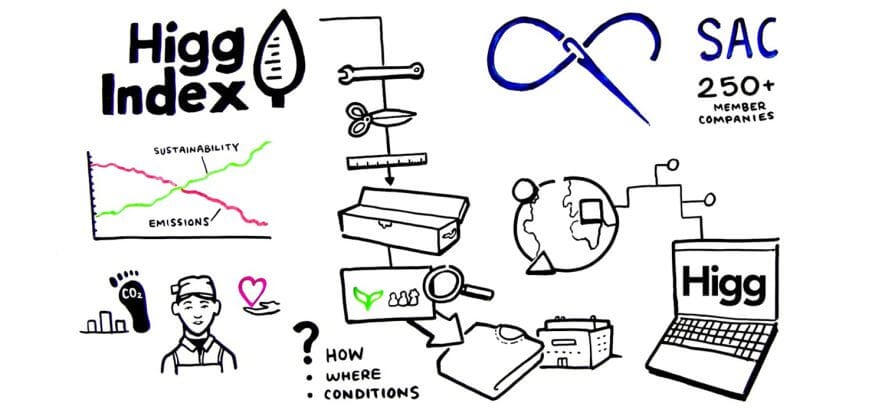Kering also rejected the Higg Index. “We think it’s not adequate for the luxury segment”. The tool was utilized by many brands, members of SAC – Sustainable Apparel Coalition, which is the entity that created the Higg Index. All was considered “valid” until last June, when the NCA – Norwegian Competition Authority stated that the index was misleading and couldn’t be used to support one’s marketing strategy. Something that, it seems, is similar to greenwashing. Now SAC is trying to outline an approach to continue its project. But in Norway, the monitoring agency doesn’t lower its attention and highlights the conflict of interests tied to this last activity.
“Large gaps”
The Sustainable Apparel Coalition is a commercial lobby among the most powerful in the fashion industry, having some important names of the segment as members. For example: Patagonia, Nike, and H&M. It released the Higg Index, promoting it as the standard tool to measure environmental and social impact of a product. Last June, after the tanning industry accused it of being “auto-referential” and after the inquiry by the New York Times (which claimed it has “large gaps”, Norway decided to prohibit it: too many inconsistencies and conclusions from old data. The consequence: SAC partially suspended it.
Kering rejects it
Meanwhile, some large companies had already moved away from it. Adidas left SAC two years ago and now uses and internal methodology to measure its sustainability level. Kering stopped using it in December 2021. “The problem with the Higg Index is that the data used isn’t verified by third parties, which is something that should be done”, says Géraldine Vallejo, director of sustainability at Kering, to Business of Fashion. “We don’t think it’s adequate for the luxury industry”.
Norway takes it apart (again)
It’s not over. Just a few days ago, SAC conducted its yearly conference in Singapore with the goal of defining a plan to pass the current controversy and re-establish the index’s credibility. But Tonje Drevland (Norwegian Competition Authority) shut down these attempts, highlighting the internal conflict of interest. “Criticism should be welcomed: it’s not acceptable that the fashion industry discusses and establishes its own rules”.
Read also:











